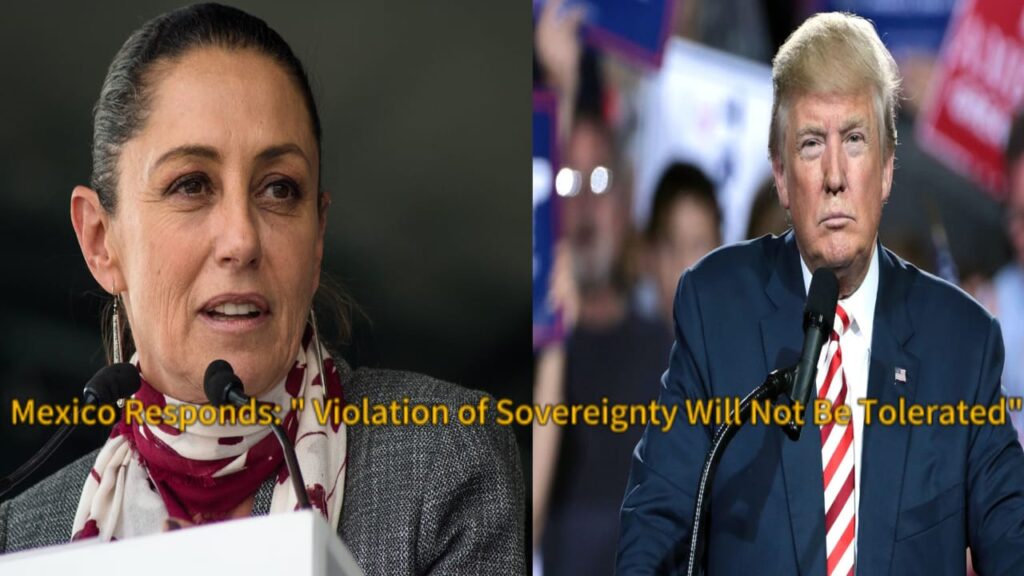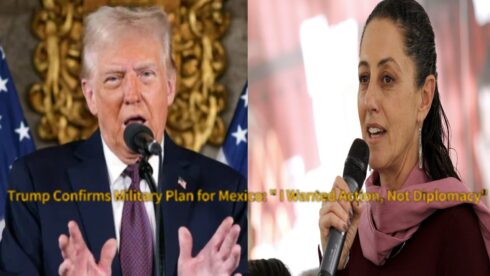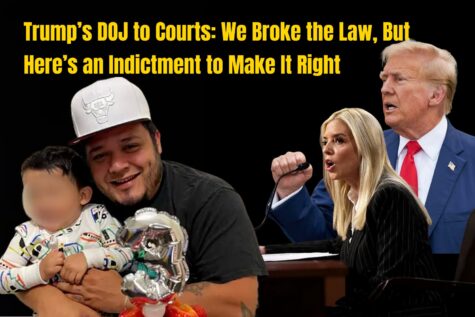Donald Trump has openly admitted that he pressured senior U.S. military officials to deploy American troops into Mexico with the explicit aim of eliminating the country’s most dangerous drug cartels. In a recent public statement, Donald Trump said, “I told the generals, these cartels are terrorists. They kill Americans every day. We should go in and wipe them out—fast and strong.” The bold declaration has reignited fierce debate over the legality and morality of cross-border military action.
Donald Trump elaborated that he encouraged military planners and intelligence agencies to create operational plans for targeted missions inside Mexico. Although these efforts were reportedly halted by legal advisers and defense officials, the revelation confirms Trump’s aggressive stance on using military force beyond U.S. borders to address domestic concerns like drug trafficking and overdose deaths.
Pentagon Resistance: “It Would Have Been a Sovereignty Nightmare”
According to defense insiders, Donald Trump’s demands met strong resistance from military leadership who warned that invading Mexican territory would violate international law and provoke a diplomatic crisis. “We were asked to draw up military plans that would involve U.S. soldiers operating in Mexico, without their government’s approval,” one retired general revealed.
Legal experts within the Pentagon raised alarms about potential violations of both the U.S. Constitution and international treaties. Officials feared such a mission would damage America’s credibility and risk triggering armed confrontation with Mexican forces. Trump, however, reportedly expressed frustration with what he saw as excessive red tape blocking decisive action.
Mexico Responds: “Violation of Sovereignty Will Not Be Tolerated”
Mexican President Claudia Sheinbaum responded swiftly, condemning Donald Trump’s comments as a direct challenge to her nation’s sovereignty. “Mexico will not permit foreign boots on its soil. We are a sovereign country, not a war zone for outside powers,” she declared in a televised address.
Mexican lawmakers from across the political spectrum echoed Sheinbaum’s stance, warning that any unauthorized military intervention would be treated as an act of aggression. The backlash from Mexico reflects deep concern over the erosion of diplomatic norms and a potential return to heavy-handed U.S. interventionism in Latin America.
Republican Base Cheers “Strongman” Rhetoric, Critics Warn of Militarization

Donald Trump’s declaration has galvanized portions of the Republican base, who view the military solution as a necessary response to the opioid crisis and rising cartel violence. Supporters praised the former president for treating the issue with the urgency they believe it deserves. “Finally, someone’s taking the fight to the source of the problem,” said a border-state mayor who attended Trump’s recent event.
Yet civil liberties advocates and foreign policy analysts warned that using military force in another sovereign country blurs the line between criminal justice and warfare. Critics argue that Trump’s proposal could set a global precedent for unilateral military strikes, undermining international order and risking unintended consequences.
Legal and Ethical Minefields: Can the U.S. Legally Strike in Mexico?
Donald Trump has previously argued that Mexican cartels should be designated as foreign terrorist organizations, a classification he claims would justify U.S. military strikes. However, legal scholars dispute this interpretation, pointing out that the U.S. has no legal authority to carry out armed operations in Mexico without its government’s consent.
Beyond legality, the ethical concerns are equally serious. Experts warn that such action could lead to civilian casualties, widespread instability, and long-term damage to U.S.-Mexico relations. Critics emphasize that effective anti-cartel policy should focus on intelligence-sharing, economic development, and bilateral cooperation—not militarization.
Campaign Calculations: Political Leverage or Diplomatic Liability?
Donald Trump’s renewed focus on militarized solutions to cartel violence appears to be a calculated move to energize his political base. It plays well in conservative-leaning states where cartel-related violence and fentanyl overdoses are top voter concerns. His hardline stance appeals to voters frustrated with current border enforcement measures.
However, this approach carries significant risks. Political analysts warn that threatening military action against a neighboring country could alienate moderate voters and Latino communities. As Trump ramps up his campaign efforts, it remains to be seen whether this high-risk strategy will boost his standing—or create diplomatic fallout that overshadows the intended message.














